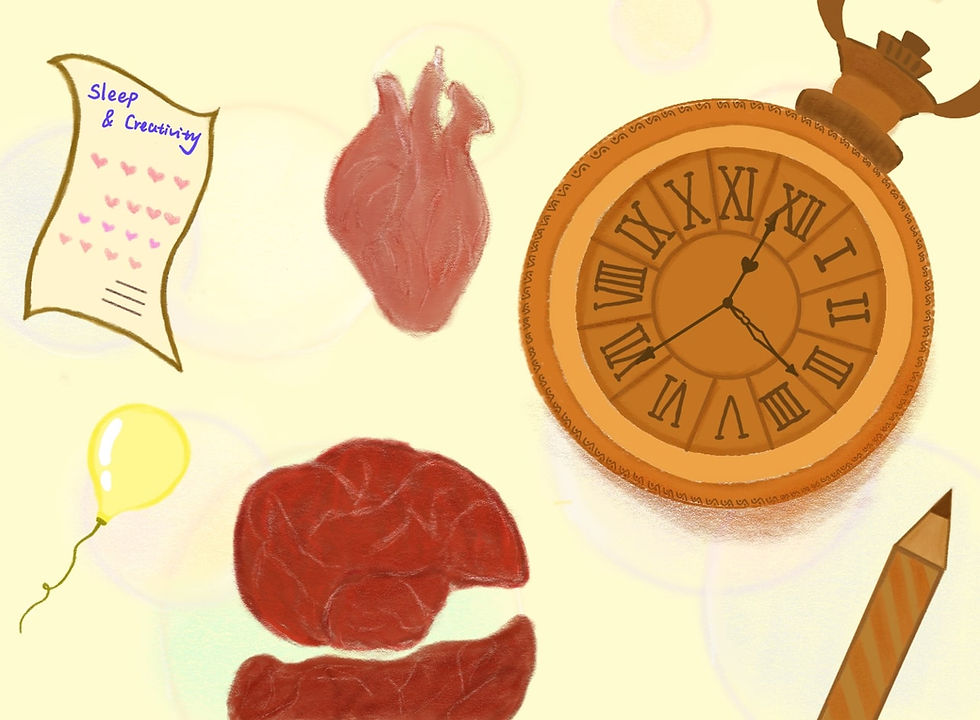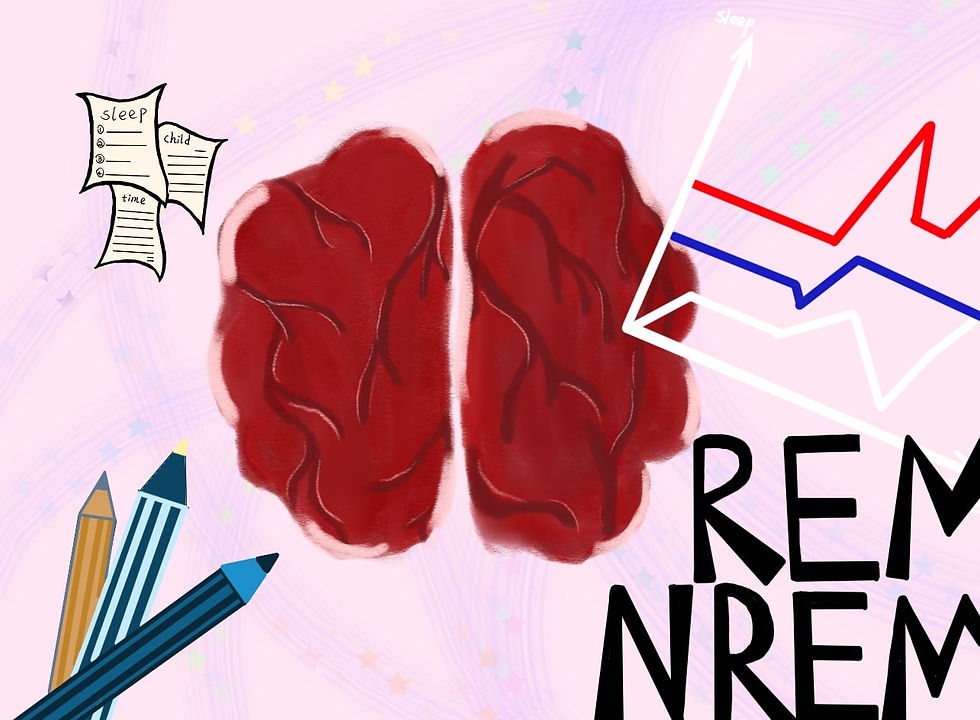Is Sleep the Solution to a Lack of Creativity?
- Science Holic
- Aug 31, 2022
- 2 min read
Author: Nikki Jiang
Editor: Ivan Feng and Jasleen Matharu
Artist: Daisy Zheng
Creativity is a necessary trait for students and professionals. Creativity can help with problem-solving skills and critical thinking and is utilized by engineers, educators, artists, doctors, and many more. Do you remember the last time you experienced a lack of creativity? Writer's block and artist’s block are common causes of low-efficiency work. Sleep is proven to benefit alertness, the immune system, and heart rate. However, it turns out that sleep also affects our brain and creativity in ways we don’t expect.

While the right brain is responsible for creative thinking and the left brain is more analytical, the creative process involves both the left and right side of the brain. Sleep improves communication between the two sides, assisting the creative process. The creative process uses pre-existing knowledge and applies that knowledge to everyday life. A recent study demonstrated that combining REM sleep and non-REM sleep improved creative thinking skills. Non-REM sleep is dreamless and prepares our body for REM sleep. REM, which stands for rapid eye movement, is the final and deepest stage of sleep. During this stage, we dream, and our bodies are temporarily paralyzed.

Memories are reinforced during non-REM sleep. Sorting through memories not only strengthens the neural connection but also allows for the development of different perspectives when encountering problems. These memories create an association network that connects new information to previous knowledge. Creativity is then stimulated, and problem-solving skills are improved.
A lack of sleep means that we are not fully experiencing each stage of sleep, which is detrimental to brain performance and hinders creative thinking. A lack of sleep can harm memory and focus, which may also induce erratic movements. To improve sleep, experts suggest following a sleep schedule, keeping your bedroom cool, and avoiding electronic devices an hour before bedtime. Try these tips to improve your creative thinking skills and overall health.
Citations:
About the author Malik Karman“Professional sleeper” Malik Karman is a freelance writer
for the eachnight blog. Over the years, et al. “How Sleep Improves and Impairs Creative
Thinking.” Eachnight, 30 Aug. 2021, https://eachnight.com/sleep/sleep-improves-
impairs-creative-thinking/.
Cai, Denise J., et al. “REM, Not Incubation, Improves Creativity by Priming Associative
Networks.” PNAS, National Academy of Sciences, 23 June 2009,
https://www.pnas.org/content/106/25/10130.
Dr. Dan JensenFollowing the completion of his undergraduate studies at Brigham Young
University. “Sleep and Creativity.” Sound Sleep Medical, 27 Apr. 2020,
https://www.soundsleepmedical.com/blog/sleep-and-creativity/.



Comments